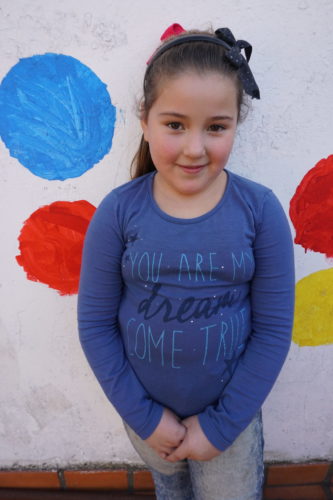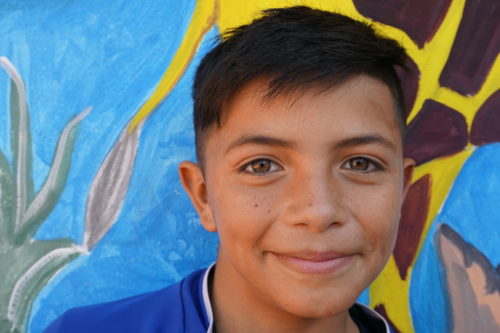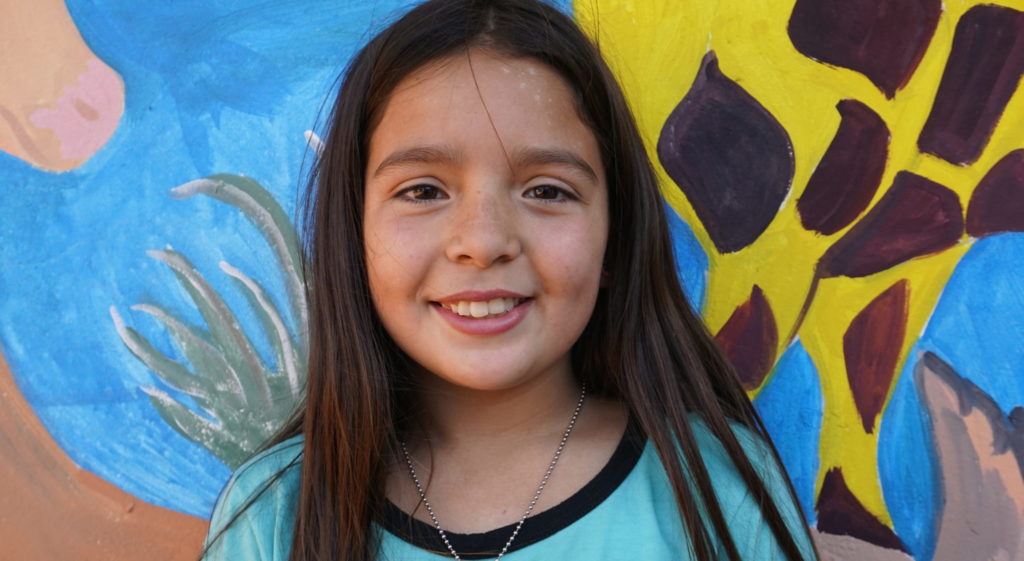Renowned for its wealth of culture, arts and beautiful European-style architecture, Buenos Aires draws thousands of tourists each year.
However, there is a hidden side of the city that few tourists experience. Extremely high inflation, rising unemployment and an increasing poverty rate leave many parents struggling to feed their children. As a result, impoverished families are forced to live in Buenos Aires’s slum neighborhoods, packed together in wooden shacks with tin roofs, separated by narrow footpaths with few resources and little hope for a way out.
Impoverished families are forced to live in Buenos Aires’s slum neighborhoods, packed together in wooden shacks with tin roofs, separated by narrow footpaths with few resources and little hope for a way out.
Located in the Florencio Varela slum neighborhood, our affiliated project Casa del Niño – Padre Jose Kentenich Daycare Center provides for the physical and social needs of impoverished children throughout the day. Serving as a daycare center and afterschool program for children while their parents are at work, Casa del Niño offers tutoring and recreational activities as well as a secure place for kids to escape from the poor conditions and uncertainty that are typically associated with urban slums.
Serving many children in need
According to Luis Bourdet, our Director of International Programs, Casa del Niño alternates their hours of operation with the local public school’s schedule.
“For those students that have school in the morning, they come to the Center in the afternoon, and vice versa. About 300 children attend this Center daily,” explained Luis.
The Center receives funding from the local government. The children most in need are enrolled in our sponsorship program to ensure they are provided with additional food, clothing and educational support — as well as the emotional and psychological support in knowing their sponsors care about them and their well-being.

Casa del Niño offers children an education and access to basic needs thanks to their sponsors.
On a recent visit to Casa del Niño, Luis, along with Children Incorporated International Projects Specialist, Kristen Walthall, found that the Florencio Varela neighborhood had received much-needed improvements in infrastructure since his last trip to Argentina nearly four years earlier.
“Roads have been improved, as well as housing. Families lives have been steadily improving too,” said Luis.
Besides the changes Luis could see outside of the home, he also found that Casa del Niño has made quite a few improvements under a new administration, which included an entirely new board of directors. Luis and Kristen toured the facility’s fully equipped kitchen, which serves children nutritious meals twice a day. A new arts program had been added as well as a sewing group for parents. The Center also began hosting parent meetings in the evenings and established a sports program for the children in the afternoons.
A dedicated and loving staff
Luis was impressed.
“The children are well cared for at the home, and their parents’ needs are being met as well — the sense of camaraderie and support can really be felt here. This Center has a bright future,” he said.
Kristen felt similarly to Luis during their visit to the Center — her first to Casa del Niño.
Casa del Niño offers tutoring and recreational activities as well as a secure place for kids to escape from the poor conditions and uncertainty that are typically associated with urban slums.
“The Center has both paid and volunteer staff members who are some of the most dedicated and passionate people I have ever met,” said Kristen.
“One board member volunteers to work with the children on a daily basis, as does her sister, who regularly teaches music to students, opening their hearts and minds with her guitar playing and hearty singing voice.”
“During our tour, we also had the chance to meet a loving and committed cook who attended the center herself as a little girl,” explained Kristen.
“When she grew up and started a family, her daughter started attending Casa del Niño. She then began volunteering as a cook and was eventually hired to run the kitchen full-time. More than twenty years later, now her granddaughter is in attendance, and benefits from the culinary talents of her grandmother and the nurturing ambiance of the Center.”
Meeting Ale

The administration of Casa del Niño works hard to ensure all of the students’ needs are being met.
Before their visit ended, Luis and Kristen had a chance to meet a staff member at Casa del Niño named Ale. According to Kristen, Ale, who is a former attorney, is a vivacious young woman who has taken on a critical role in the Center’s growth.
After becoming involved with the Center’s recreational activities, Ale found that there was a divide among the kids that prevented them from getting along with one another during their allotted sports recess times. Since soccer was the only game the children played, some of the kids were much better at the sport than others — and fellow participants criticized those that weren’t very skilled.
Ale came up with a plan that would help to level the playing field among the children. She introduced baseball into the afterschool curriculum, giving kids a chance to try something new so the focus wasn’t solely on their soccer abilities.
When Luis and Kristen visited the Center, they witnessed the newest sport being introduced: field hockey. Ale explained to them that thanks to a generous donation, she was able to obtain field hockey sticks and balls and give the children another sport to learn together for the first time.
***
How do I sponsor a child in Argentina?
You can sponsor a child in Argentina in one of three ways: call our office at 1-800-538-5381 and speak with one of our staff members; email us at sponsorship@children-inc.org; or go online to our sponsorship portal, create an account, and search for a child who is available for sponsorship in Argentina.

